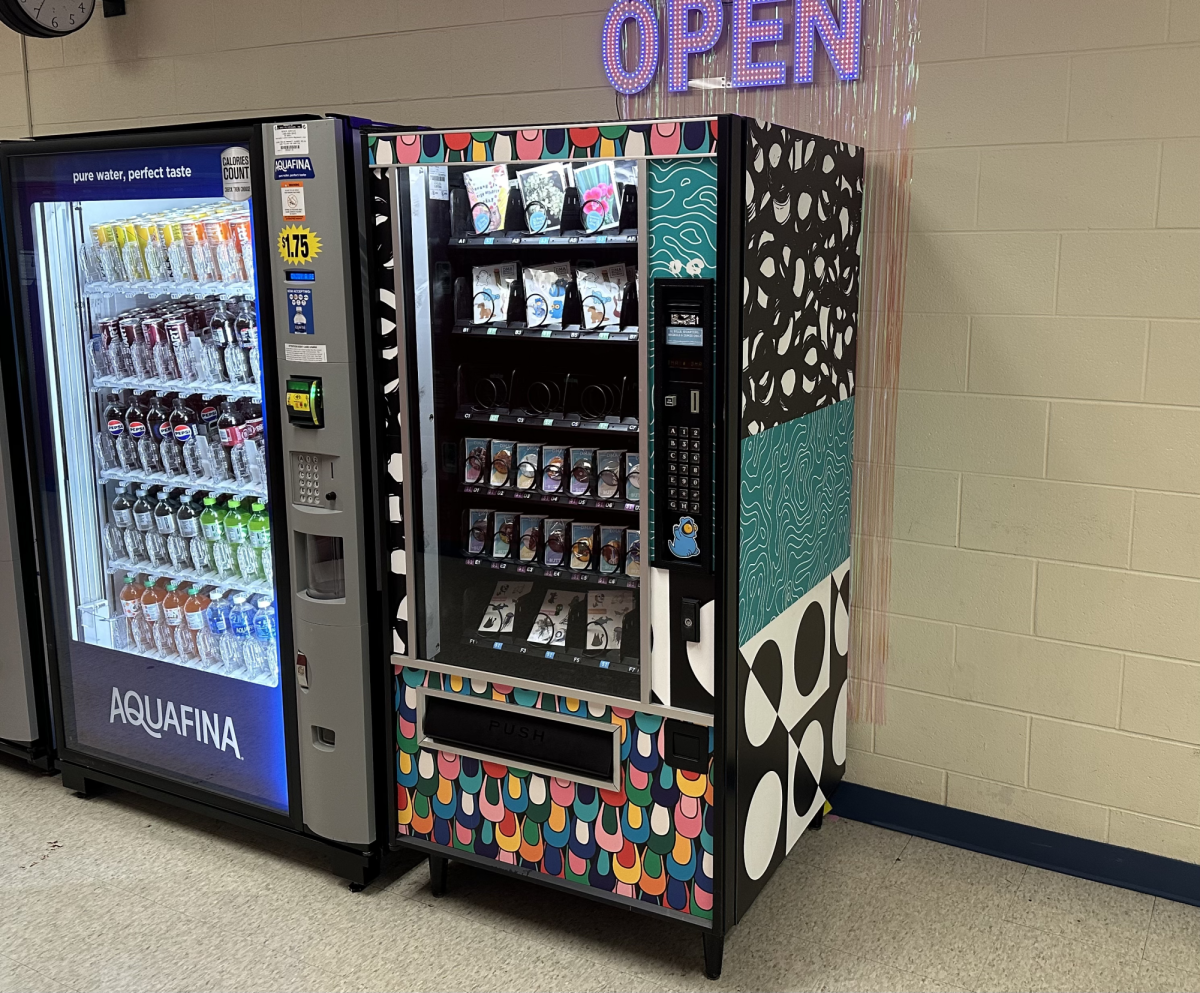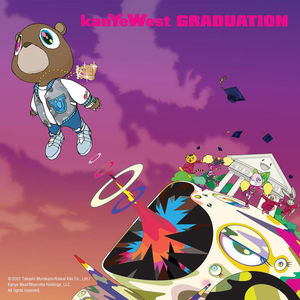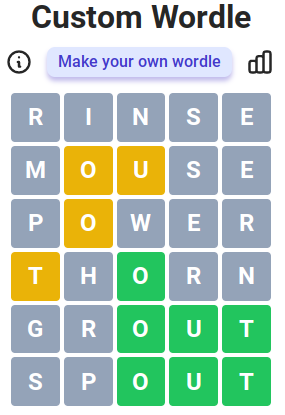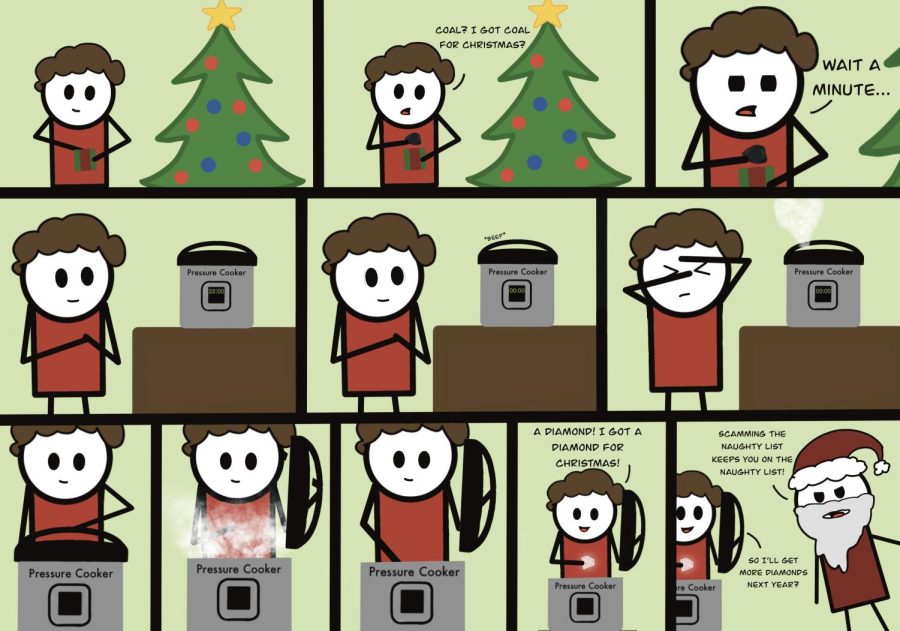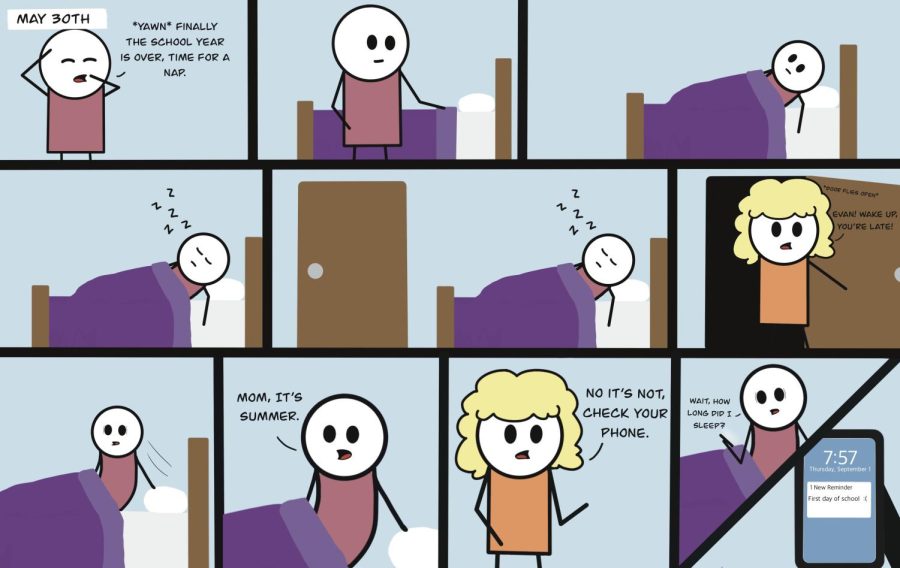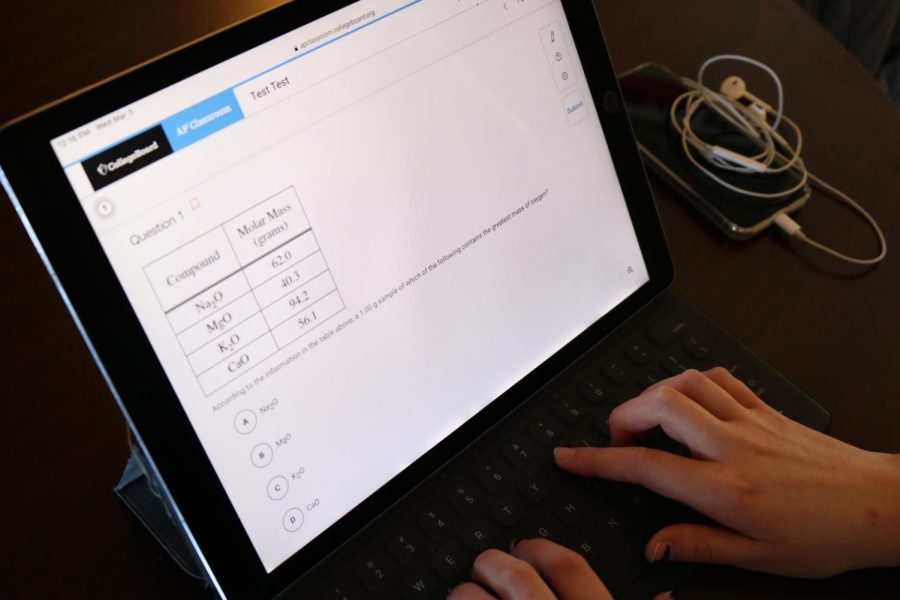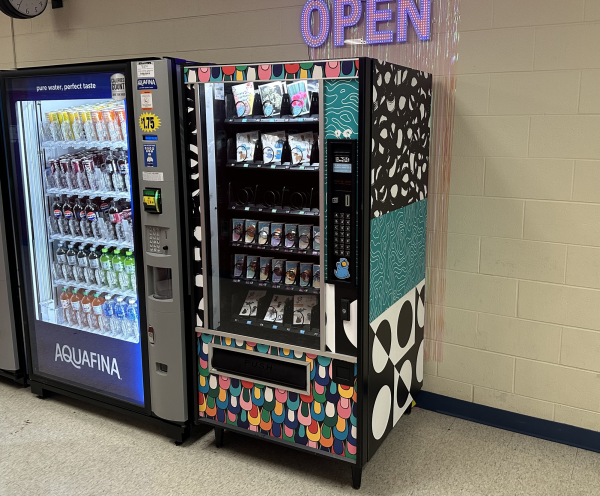Schools navigate how to run AP exams during the pandemic
AP Exams will contain the traditional structure of previous years but with new options due to COVID-19.
This year, the College Board is offering schools across the country the ability to administer AP tests under three different administrations. Administration one is in school, with paper and pencil, from May 3 to May 17. Administration two is in school and at home online from May 18 to May 28. Administration three is in school and at home from June 1 to June 11.
“We have to follow rules established by AP as well as their curriculum. As far as the actual setup of classrooms, the guidelines require a 6-foot distance. We use one person per 8-foot table, which is more than what is required by the Warren County Health District. We feel very confident that we can sanitize tables, chairs, and distance all students comfortably,” Leist said.
Last year, the College Board cut the exams into one or two free-response questions or essays offered only online. This hurt last year’s sophomores’ chances to experience a true AP test for the first time.
“The test being shortened to only 45 minutes made it seem like all the work and studying that every student put in the past few months was kinda tossed out the window,” junior Nick Marchal said. “Like we had been practicing for multiple-choice. We’d been learning all this stuff just for like, a 45-minute essay. And then also spending $90 still for an essay in 45 minutes, it’s like, okay, well, what was the point of that?”
Many AP teachers and students agree that the traditional paper and pencil exam versions are better, both to help maintain a student’s performance, and to help the teachers prepare their students well, especially during these harder times. This includes AP math and science courses, which have difficult changes this year.
“For AB and BC math classes, and really even for science classes, digital would not work well, because they [College Board] reiterated in the rules that there is no taking pictures and uploading this year. So you would have to be able to math type everything, and I would be afraid that my students wouldn’t have enough time because they’re not used to using math type,” AP Calculus AB and BC teacher Michelle West said.
Grading paper exams could be more difficult than grading online. This is because the exams will be sent to the AP Readers through images scanned after being collected, meaning that it may be harder to see handwriting for free-response questions or essays.
In previous years, Readers would sit at a table with eight others, including a table leader, and could consult each other on the illegible handwriting.
“Now this past year [online], I didn’t really run into any I couldn’t read but some of them where there [was] suspicion of cheating, then you would send it back, like flag it to your table leader. they would look at it. If it turns into one of those I can’t read what’s on the screen, I would assume it would be the same way, you send it back to your table leader, you flag it as needing to be reviewed by someone else, and then someone else will review it and see what they can make of it.” AP Psychology and Reader Sarah Hennessey said.
With the other two administrations happening in late May and the beginning of June, students are thankful to get the exams out of the way in order to enjoy their summers and, in the case of seniors, move on from high school. If the Administration changed, or students did have to go online again, it wouldn’t be welcomed by all students.
I would be pretty mad about it if there was the option for the in-person, but [there’s] nothing I could do about it. So [I’d] just get over it and start preparing for it online. And hopefully I do as well,” senior Cameron Morrison said. “And if we did the June one, I’d be extra mad because I’d be graduated at that point and I don’t want to be doing high school stuff when I’m done with high school. So thankfully, we got the early in-person.
In the upcoming years, schools will need to work with the College Board to ensure they have access to the AP classes and exams no matter the circumstances they are under, whether during the pandemic or in general.
“I think they [College Board] should definitely offer all three, but schools should take into account the opinions of the students and the teachers who ultimately are going to be dealing with this stuff the most. I think that’d be helpful because that opens the flexibility even more,” Marchal said.
Want to show your appreciation?
Consider donating to The Knight Times!
Your proceeds will go directly towards our newsroom so we can continue bringing you timely, truthful, and professional journalism.

As a senior and Co-Editor in Chief of The Knight Times, Alyssa enjoys assisting her fellow writers on their articles and interviewing; she loves to hear...





